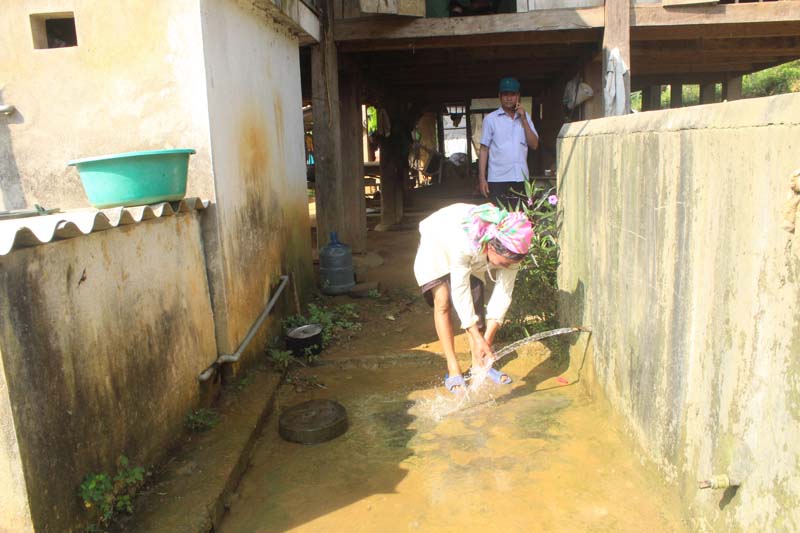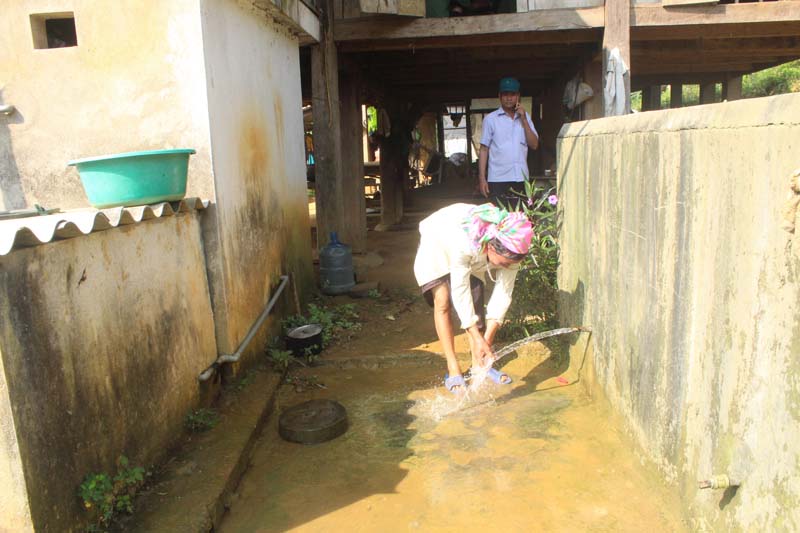


 Living standard of locals in Nanh Nghe commune, Da Bac district, has
been improved thanks to a project giving them access to clean water.
Living standard of locals in Nanh Nghe commune, Da Bac district, has
been improved thanks to a project giving them access to clean water.
The People’s Committee sets the target of reducing the province’s poverty rate from 11.36 percent in 2019 to 8.56 percent by the end of this year and providing all eligible poor households with access to soft loans.
It will also make sure all the poor people and people from ethnic minority groups living in disadvantaged areas are covered in health insurance while poor students from local ethnic minority communities and policy beneficiaries will receive tuition fee reduction and other financial supports.
The province plans to continue building toilets for poor and near-poor households and policy beneficiaries and giving them clean water access. It will also diversify ways to earn living and scale up effective poverty reduction models to ensure at least 15 percent of needy households are lifted from poverty every year.
To reach the goals, the provincial People’s Committee has chalked out major tasks and solutions, including effective implementation of projects within the national target programme on sustainable poverty reduction for 2020 after funds are allocated.
The province will review the status of poor and near-poor households in the final quarter of 2020 and integrate poverty reduction projects with others from the national target programme on new-style rural building for communes with high poverty rates.
It will accelerate communications work to raise public awareness of the poverty reduction goals and motivate impoverished people to take responsibility to lift themselves from the poverty.
It will also further mobilise various social resources for local poverty alleviation and effective implement poverty reduction programmes in terms of soft loans, education, healthcare, housing, clean water and hygiene and information access./.